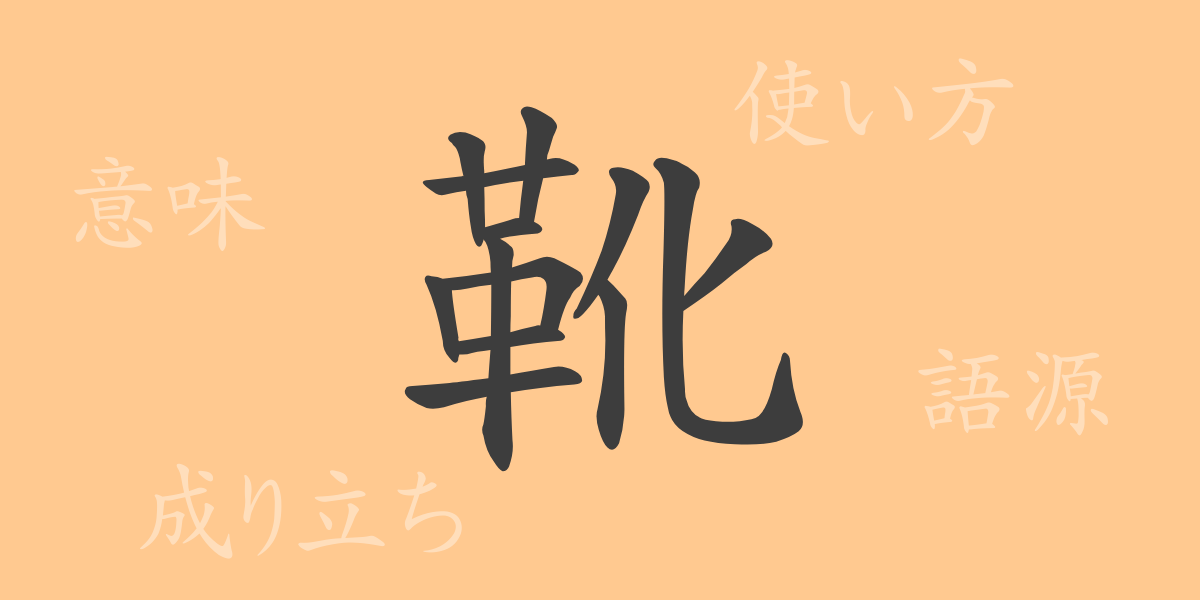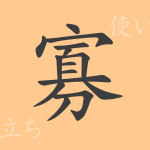An item that supports our steps and sometimes expresses our individuality, that’s what “shoes” are. Shoes are indispensable in our daily lives, but how much do we know about their history, meaning, and the way they are used? In this article, we will focus on the Japanese kanji for “shoe” (靴)(Kutu), exploring its origins, evolution to the present day, meaning and usage, as well as idioms and proverbs related to shoes, unraveling everything about them.
The Origin of Shoes (Etymology)
The word for shoe in Japanese, which comes from the term “くつ” (Kutsu), meaning to cover the feet, has been rooted in people’s lives since ancient times. As a tool to protect the feet and aid in walking, shoes have existed since antiquity. In ancient China, they were also used as a symbol of status, with various changes in shape and material. In Japan, shoes have historically played an important role, with styles evolving over time from the sandals worn by samurai to the geta and straw sandals worn by the general populace.
The Meaning and Usage of Shoes
Shoes fundamentally serve as a tool to protect the feet and make walking comfortable. However, they are not limited to this function; they also have a strong aspect as a fashion item, with a wide variety of designs reflecting individual style, trends, and functionality. In business settings, formal shoes are required, while in sports, functional sports shoes are sought after, making it important to choose the right type of shoe for the occasion.
How to Read the Kanji for Shoes, Stroke Count, and Radical
The kanji for “shoe” (靴)(Kutu) is included in the list of commonly used kanji in Japan and is a character frequently seen in our lives.
- Reading: The onyomi (Chinese reading) is “か” (Ka), and the kunyomi (Japanese reading) is “くつ” (Kutsu).
- Stroke Count: There are 13 strokes in total.
- Radical: The radical is “革” (Kaku), which means leather or hide.
Idioms, Phrases, and Proverbs Using Shoes and Their Meanings
Shoes appear in various idioms, phrases, and proverbs. For example, the expression “shoes wo migaku” (靴を磨く) (Kutu-wo-miga-ku)directly means to polish shoes, but it also implies preparing oneself or putting one’s affairs in order. Similarly, “shoes no ura ga heru” (靴の裏が減る) (Kutu-no-ura-ga-he-ru)indicates being very busy with many outings. These expressions tell us how closely shoes are related to our lives.
Conclusion About Shoes
Shoes transcend mere foot protection tools and function as items that express social status and personal taste. Their designs and materials have evolved with the times, and today, there is an endless variety of options available. Shoes, which support our steps, are imbued with much history and culture, and each pair has a deep meaning. When choosing shoes in our daily life, it’s important to remember the history and culture behind them and find the perfect pair that suits you best.

























